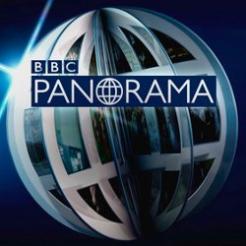Accusations that Save the Children has been censoring criticism of the energy industry out of fear of upsetting corporate partners is just one negative story that the charity world has woken up to this morning.
BBC Panorama’s ‘All in a good cause’ will tonight examine the financial investments and expenditures of some charities, including Save the Children, Comic Relief and Amnesty International.
A whistleblower from Save the Children, its former head of news Dominic Nutt, told the programme that press releases he would write condemning British Gas and its fuel prices, were spiked. The fuel giant was a corporate partner of the charity, yielding £1.5m to Save the Children in the ten years up to November 2012.
And email chains due to be broadcast by the programme suggest that a fuel poverty campaign was abandoned over fears it would jeopardise potential EDF money.
Hutt said: “Being warm and friendly and non-challenging to corporates became part of the Save the Children DNA.”
He wrote in today’s Independent: “Companies want only one thing – good PR. And that’s why they come to Save and other charities. Corporations are stuffing the mouths of some NGOs with gold, and it is wrong.”
Hutt added that there were other examples where Save the Children restricted comment to avoid upsetting corporate partners. He claims that a blog post written on the abuse of children in the tea industry was cut over fears it would jeopardise the charity’s relationship with Lipton.
Save the Children’s chief executive, Justin Forsyth, responded to such allegations saying: “It is simply wrong and misleading to suggest our silence can be bought. We will continue to campaign on all the areas we think matter most to saving children’s lives both at home and abroad.”
He added: “Save the Children would never put in jeopardy our values and our cause by pulling our punches on a campaign for money from a corporate partnership.”
Amnesty International severance packages
The documentary is also looking at reports that Amnesty International misled the public over payoffs it made to its former secretary general and her deputy. The severance packages, which were not made clear in the public accounts, were reported by civilsociety.co.uk in March 2011.
Panorama has claimed to have obtained a copy of a confidential internal report that reveals that the public statements made by Amnesty were misleading.
A spokesperson from the charity said: “As we have said before, payments made to Amnesty’s former secretary general and her deputy when they left their roles in 2009 were excessive.
“However, the internal report Panorama refers to was in fact an independent review available to all our three million members. This was conducted by Dame Anne Owers and Amnesty has accepted and implemented her recommendations, so that such a situation could not arise again.
It added: “To suggest the payments were concealed is factually wrong. They were published in the directors’ remuneration pages of the annual report of the Amnesty International Secretariat, a copy of which is publically available on the amnesty.org website.”
Loss on Secret Policeman’s Ball
Amnesty is also attracting criticism over the £750,000 loss incurred by the charity when organising its 2012 Secret Policeman’s Ball. Panorama claims it has seen evidence of poor management decisions leading to the money being wasted, but these figures were not shown in its 2012 accounts.
Amnesty commented on this matter, saying: “The March 2012 Secret Policeman’s Ball raised awareness of Amnesty International much more cost-effectively than advertising would have done and helped us to increase income for our human rights work. While it raises money for us, the Ball’s primary objective has always been to raise awareness and the fact that it might not cover its costs was agreed in November 2011 when the event received final sign-off.”
Comic Relief investments
Comic Relief has also been exposed by Panorama as holding investments in weapons and tobacco industry shares. This includes £630,000 of shares in arms firm BAE systems and more than £300,000 in alcohol manufacturer Diageo.
The charity, which appeals for money to fight tuberculosis, had almost £3m invested in shares in three different tobacco companies in 2009.
Former chair of Comic Relief, Peter Bennett-Jones, said in a statement today: “As an organisation do we get every decision correct all of the time? Of course not; who does? But we get a lot more right than wrong and we are always well motivated and we are very effective. Do we operate in a perfect world? Clearly not, but we make decisions in good faith and with integrity.”
Aid agencies paying militants
Continuing the negative media criticism that charities have been receiving today, the BBC has reported that aid agencies paid Somalia’s al-Shabah militants for access to areas under their control in the 2011 famine.
A report by the Overseas Development Institute and the Mogadishu-based Heritage Institute for Policy Studies details how al-Shabab demanded “registration fees” from the aid agencies of up to $10,000 (£6,100).
Some of the agencies, who have not been named, are still paying al-Shabab to operate in the parts of Somalia it holds, the report states.
Media criticism beyond the BBC
Elsewhere, some people have taken the opportunity to raise concerns over how charities are being run.
Oliver Duff, editor of the i, wrote: “Charities can so easily squander trust and undermine their good work.”
He concluded: “Panorama should be applauded. Just as the media must challenge governments, so too must it shine a spotlight on the work of charities – none of which should consider themselves beyond scrutiny.”









